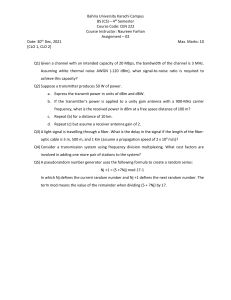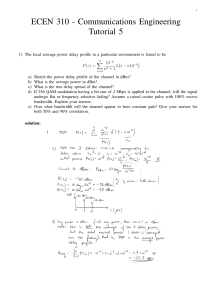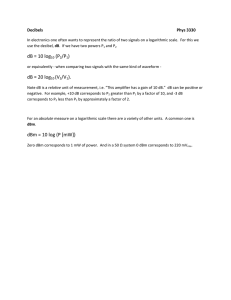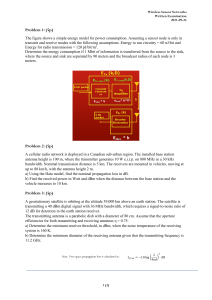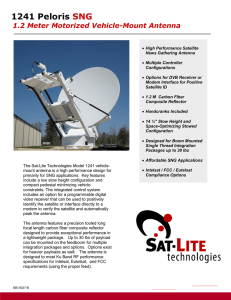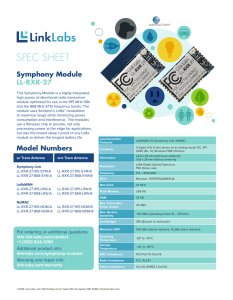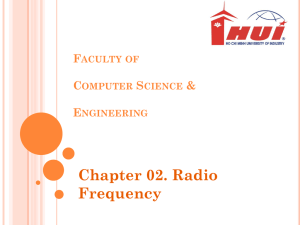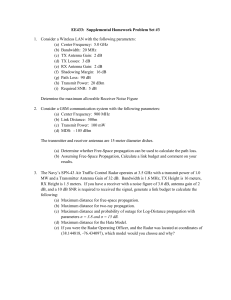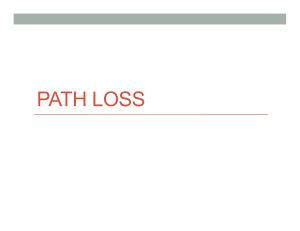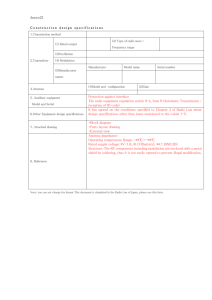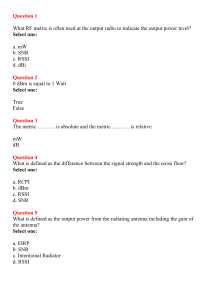Communication Range & Signal Power Solutions
advertisement
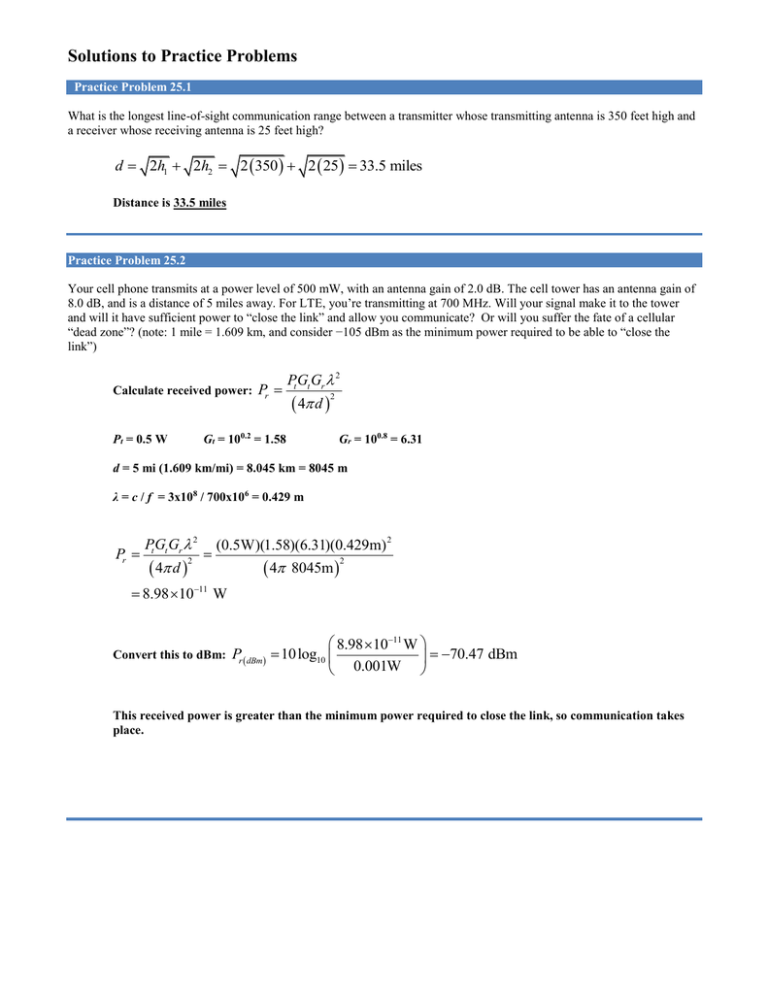
Solutions to Practice Problems Practice Problem 25.1 What is the longest line-of-sight communication range between a transmitter whose transmitting antenna is 350 feet high and a receiver whose receiving antenna is 25 feet high? d 2h1 2h2 2 350 2 25 33.5 miles Distance is 33.5 miles Practice Problem 25.2 Your cell phone transmits at a power level of 500 mW, with an antenna gain of 2.0 dB. The cell tower has an antenna gain of 8.0 dB, and is a distance of 5 miles away. For LTE, you’re transmitting at 700 MHz. Will your signal make it to the tower and will it have sufficient power to “close the link” and allow you communicate? Or will you suffer the fate of a cellular “dead zone”? (note: 1 mile = 1.609 km, and consider −105 dBm as the minimum power required to be able to “close the link”) Calculate received power: Pr 2 PG t t Gr 4 d Gt = 100.2 = 1.58 Pt = 0.5 W 2 Gr = 100.8 = 6.31 d = 5 mi (1.609 km/mi) = 8.045 km = 8045 m λ = c / f = 3x108 / 700x106 = 0.429 m Pr 2 PG t t Gr 4 d 2 (0.5W)(1.58)(6.31)(0.429m) 2 4 8045m 2 8.98 1011 W Convert this to dBm: 8.98 1011 W Pr dBm 10log10 70.47 dBm 0.001W This received power is greater than the minimum power required to close the link, so communication takes place.
